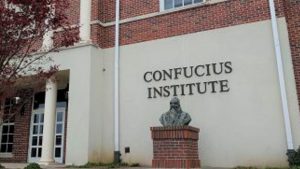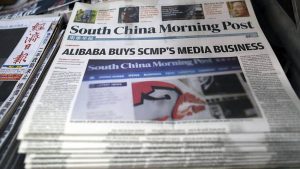
CCP’s Persistent Intellectual Property Theft Condemned by Ambassador Burns

U.S. Ambassador to China, Nicholas Burns, has voiced grave concerns over the continued theft of intellectual property (IP) from American firms operating in China, highlighting the significant challenges faced by these companies.
In an interview on CBS News’s “60 Minutes” aired on February 25th, Ambassador Burns emphasized that IP theft remains a critical issue raised by U.S. companies operating in China. He asserted, “There is still intellectual property theft from American companies here,” underscoring the severity of the problem.
When asked whether every American company fear IP theft in China, Ambassador Burns responded unequivocally with “Yes.”
The Chinese Communist Party (CCP) has long been accused of systematically stealing IPs and trade secrets from foreign companies and institutions, aiming to bolster China’s technological and IP capabilities. A report by the Office of the U.S. Trade Representative in 2018 estimated that Chinese IP theft costs American businesses between $225 billion and $600 billion annually.
The latest annual business climate report by the American Chamber of Commerce in China, published on February 1st, identified cybertheft and IP theft by employees as predominant challenges faced by its members in 2023. Additionally, concerns were raised about inadequate legal protection, difficulties in prosecuting IP infringements, and expectations regarding technology transfer arrangements with Chinese partners.
Ambassador Burns also addressed recent developments regarding China’s counter-espionage efforts, including raids on consultancy and due diligence firms during an anti-spy crackdown. He expressed apprehension over the broad scope of China’s revised counter-espionage law, warning of potential accusations of espionage against American businesspeople engaged in lawful practices.
Describing the U.S.-China relationship as the “most important, most competitive, and most dangerous” globally, Ambassador Burns predicted continued competition between the two nations into the next decade. He emphasized that the current rivalry with China differs from the Cold War era, noting China’s robust economic strength as a formidable adversary.
Contrary to labeling the competition as a new Cold War, Ambassador Burns framed it as “a competition of ideas,” contrasting America’s democratic values with China’s authoritarian model. He highlighted the ongoing technological race, particularly in areas such as artificial intelligence (AI) and biotechnology, which have significant implications for military supremacy in the Indo-Pacific region.
In conclusion, Ambassador Burns reiterated the United States’ commitment to defending its interests and values against the backdrop of China’s ambitions to replace America as the dominant global power.














Comments